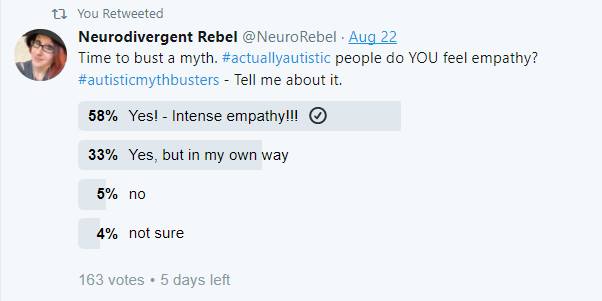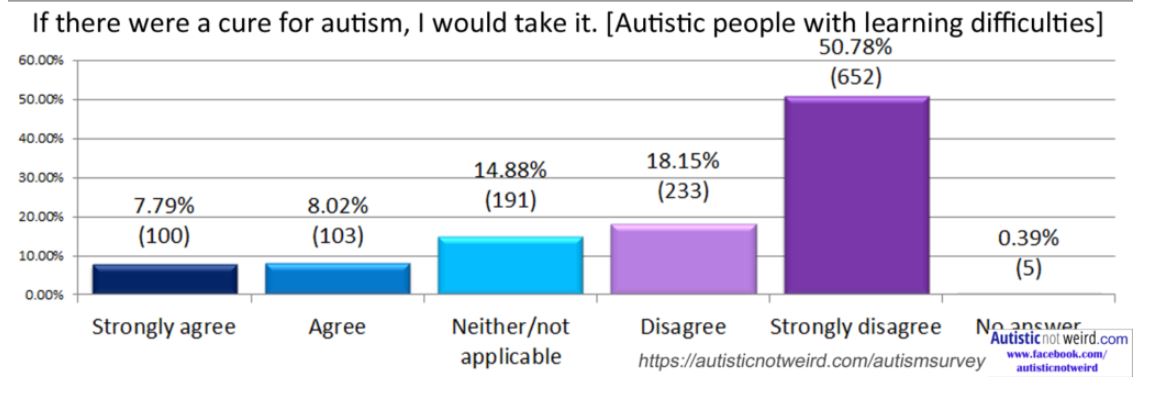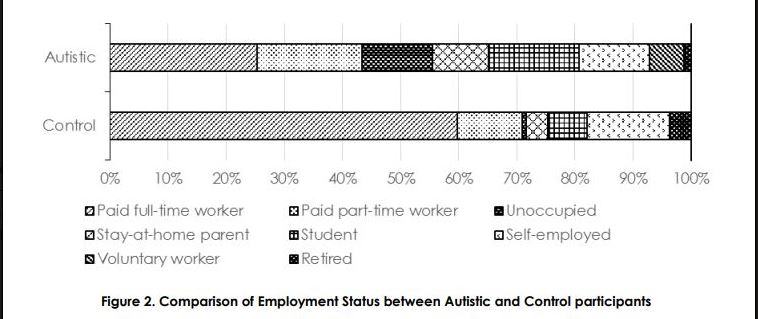How do I know if I am getting good training on autism? Quick thread.
It& #39;s important. Nearly everything we thought we knew about autism has changed in the last couple of years. Not joking. Those familiar with my page will have seen a lot of it.
Here we go/
It& #39;s important. Nearly everything we thought we knew about autism has changed in the last couple of years. Not joking. Those familiar with my page will have seen a lot of it.
Here we go/
First, is this training from a real autistic person/team, or at least an online version also giving you access to the real autistic people? Meeting us and chatting with us is the most important thing of all, in terms of understanding the humanity and worth of autistic people/
Allies are great, as long as they are working with us, as equal partners. People who respect us, pay us equally and properly (as per our requests) for development of materials, for doing the training, for any & #39;royalties& #39; from work being sold on afterwards/
Then, we need to think about what& #39;s in the training. I did a handy blog about some of the things to watch out for. Here it is. http://annsautism.blogspot.com/2019/02/autism-is-your-training-from-1940s.html
It">https://annsautism.blogspot.com/2019/02/a... has these main points in it, for reference, also/
It">https://annsautism.blogspot.com/2019/02/a... has these main points in it, for reference, also/
Training from autistic specialists is not the same as listening to a 10 minute & #39;self narrating zoo exhibit& #39; talk from an 18 yr old they found. There& #39;s definitely a place for listening to lots of autistic people of all kinds. Absolutely.
But specialists are different to that/
But specialists are different to that/
Autistic specialists are the same level as non-autistic specialists. Experienced, trained, qualified. Often decades of experiences to share about life as well, of course. But expertise is what you& #39;re buying; you& #39;re paying for years of study, hard work, deep knowledge/
You& #39;re paying for autistic specialist teams who bring that wealth of experience and practical solutions. Who can hear and see using autistic senses, who can communicate authentically using autistic communication methods. Yes, it& #39;s a different natural communication system. /
If we are going to make a difference to autistic people struggling in some care systems, we need to get very real about making a difference. Glad indeed to be working with fantastic teams across the country who are doing just that.
Get authentic training.
It works.
Get authentic training.
It works.
Highlights of the & #39;oops& #39; moments: The huge research at https://bmjopen.bmj.com/content/9/8/e029040.full?fbclid=IwAR1c5qMgMj5JQlXpVb7SNTAEybf6WZnih34Fhunfa1pCvWCx0pbU6aHINMc">https://bmjopen.bmj.com/content/9... showing only 15 out of every 100 young autistic people has an intellectual disability.
http://dart.ed.ac.uk/wp-content/uploads/2019/04/Diversity-in-Social-Intelligence-Participant-Summary-.pdf">https://dart.ed.ac.uk/wp-conten... showing autistic people have a genuinely different social communication system.
http://dart.ed.ac.uk/wp-content/uploads/2019/04/Diversity-in-Social-Intelligence-Participant-Summary-.pdf">https://dart.ed.ac.uk/wp-conten... showing autistic people have a genuinely different social communication system.
Also https://www.cochrane.org/CD009260/BEHAV_early-intensive-behavioral-intervention-eibi-increasing-functional-behaviors-and-skills-young">https://www.cochrane.org/CD009260/... international top class audit of early behaviour intervention techniques for young autistic people. No difference to & #39;problem& #39; behaviour.
https://www.spectrumnews.org/features/deep-dive/rethinking-repetitive-behaviors-in-autism/">https://www.spectrumnews.org/features/... Most repetitive behaviours have a proper purpose/
https://www.spectrumnews.org/features/deep-dive/rethinking-repetitive-behaviors-in-autism/">https://www.spectrumnews.org/features/... Most repetitive behaviours have a proper purpose/
Autistic people with an intellectual disability want a cure? Mostly myth. Look. (Autistic Not Weird, huge survey, 2018)
Autistic people should be trained to disguise our autism? Dangerous myth.
"...unique risk markers for suicidality in ASC include camouflaging one’s ASC in order to fit in in social situations, and number of unmet support needs." #Tab1">https://molecularautism.biomedcentral.com/articles/10.1186/s13229-018-0226-4 #Tab1">https://molecularautism.biomedcentral.com/articles/...
"...unique risk markers for suicidality in ASC include camouflaging one’s ASC in order to fit in in social situations, and number of unmet support needs." #Tab1">https://molecularautism.biomedcentral.com/articles/10.1186/s13229-018-0226-4 #Tab1">https://molecularautism.biomedcentral.com/articles/...
Most are not in work, costing society money? Myth.
For sure many face multiple prejudices and obstacles, despite being fabulous for teams once they know what autism is & adapt a bit. But so many are carers, parents, in education, volunteers, self employed, etc.
For sure many face multiple prejudices and obstacles, despite being fabulous for teams once they know what autism is & adapt a bit. But so many are carers, parents, in education, volunteers, self employed, etc.

 Read on Twitter
Read on Twitter




